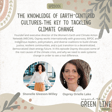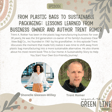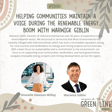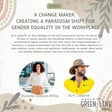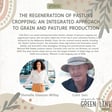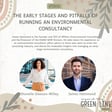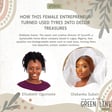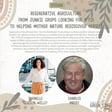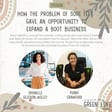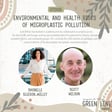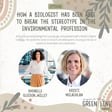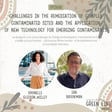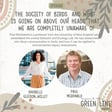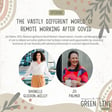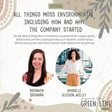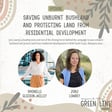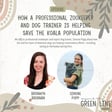
Consulting Communities And Engaging With Stakeholders
On today’s episode of Beyond the Green Line, Shonelle Gleeson-Willey chats with Warwick Giblin, a veteran in the environmental management space, and one of her personal mentors.
Warwick has 40 years of senior executive experience in environmental management in both government work (with National Parks and Wildlife Service and Sydney Water) and various corporations (such as Waste Management International and Waste Management NZ Ltd).
He is currently the Managing Director of OzEnvironmental Pty Ltd, which provides high-end technical, legal and strategic advice to farmers, Councils, Traditional Owners, and businesses when development projects come to their town (or farm, as the case may be).
This was a fascinating, insightful, and extremely necessary conversation about helping communities maintain a voice during land development projects.
Many of the impacted areas Warwick supports involve multigenerational farms, tight-knit communities, and various other types of landholders. Becoming aware of a large project in the approvals process in their area can lead to much uncertainty and distress.
Landowners can become aware of pending development plans through a variety of different avenues including, a mailed letter, a social media post, or a knock on the door. Often, Warwick’s clients then experience physical and mental wellness challenges because of resulting worry. They begin to wonder what will happen to their piece of paradise, whether they will receive compensation, and how they will retain a voice in the daunting power dynamic of dealing with developers.
Warwick encourages people in this situation to rally community, build a support network, and utilize professional advice from an environmental practitioner who is familiar with the Environmental Planning and Assessment Act and the assessment and determination process.
Recently, the Sydney Morning Herald published an article explaining how the NSW state government planned to fast-track transmission line projects for renewables in the regions. While rapid decarbonization of our energy system is important, it’s also imperative to examine how these projects’ rapid assessment processes will affect communities with substantial change and disruption.
Many landowners have limited economic capacity compared to developers, and Warwick’s presence helps farmers and communities in this situation retain influence throughout the development process.
Shonelle and Warwick share stories about their mutual desire to see communication between developers and affected communities be more balanced. Too often, meetings seem to involve developers telling communities how the process will go, and Warwick believes a change in this dynamic will only happen when developers are truly convinced that it’s in their best interests to take the voices of the community into account, even in the early planning stages.
Warwick also relays much wisdom and experience around creating openness and transparency, even in tense conversations with developers, and ensuring real accountability during the land development process.
Podcast — Sydney Environment Institute
Renewables & rural Australia - The Australia Institute
